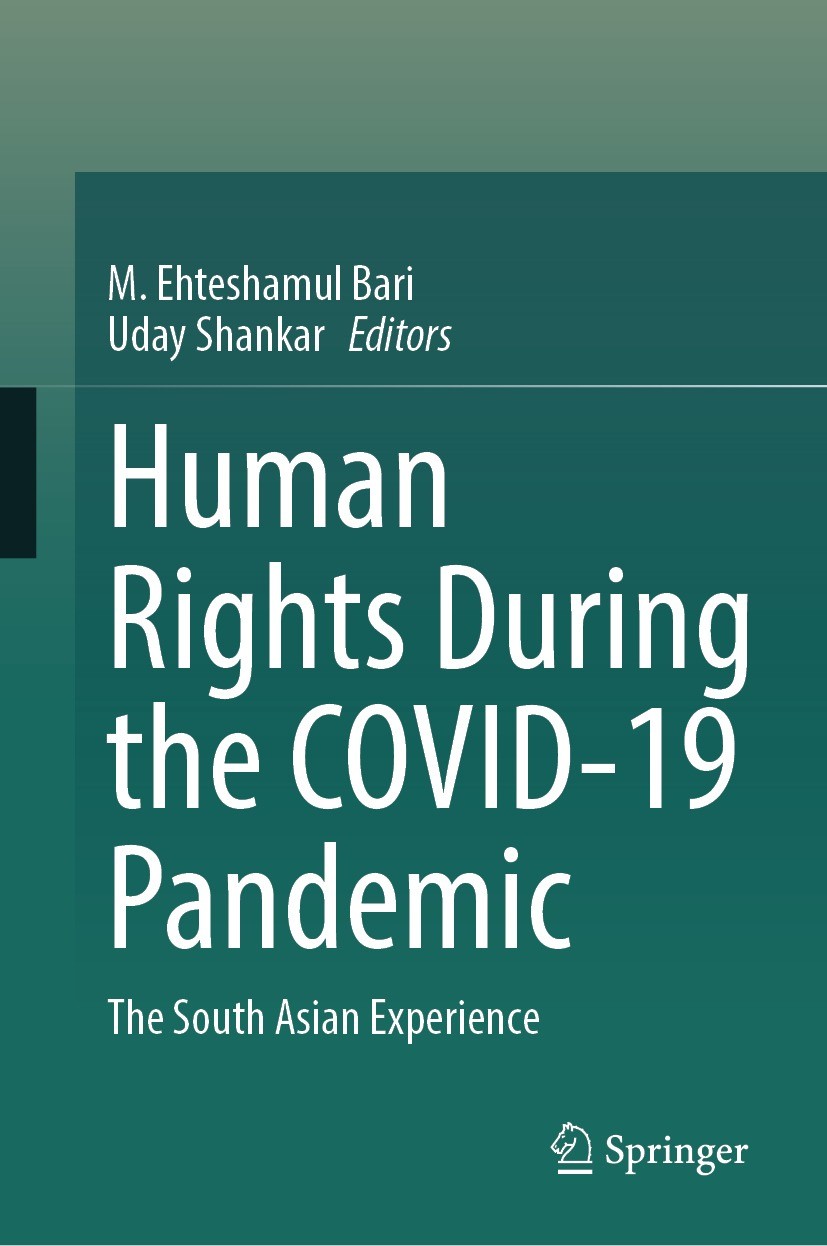| 书目名称 | Human Rights During the COVID-19 Pandemic | | 副标题 | The South Asian Expe | | 编辑 | M. Ehteshamul Bari,Uday Shankar | | 视频video | http://file.papertrans.cn/430/429435/429435.mp4 | | 概述 | Identifies the weaknesses of legal framework relied on in the South Asian nations to respond to the COVID-19 pandemic.Examines the adverse impact of the invocation of emergency measures during the pan | | 图书封面 |  | | 描述 | .This book sheds light on the fact that the proclamation of an emergency can be a legitimate constitutional method to take prompt preventative measures in protecting the interests of the society in times of grave crises. However, the exercise of emergency powers should not undermine a nation’s commitment to democratic values, such as maintaining the rule of law and upholding fundamental human rights. The COVID-19 pandemic has posed grave threats to the lives and health of individuals. However, since the constitutions of South Asian nations do not permit the proclamation of an emergency on health grounds, executives of these nations were constrained to rely, among other things, on ordinary legislation to tide over the threats posed by the pandemic. Although these statutes entrust the executive with extensive emergency powers, they do not simultaneously stipulate any safeguards subjecting the exercise of such powers to a reliable system of checks and balances.. . . .Accordingly, this book critically examines the exercise of emergency powers in the South Asian nations to tide over threats posed by the COVID-19 pandemic, which had a profoundly adverse impact on the human rights of indi | | 出版日期 | Book 2024 | | 关键词 | COVID-19; Human rights; constitution; Fundamental Rights of the Citizens; liberty; World Health Organizat | | 版次 | 1 | | doi | https://doi.org/10.1007/978-981-97-1480-3 | | isbn_softcover | 978-981-97-1482-7 | | isbn_ebook | 978-981-97-1480-3 | | copyright | The Editor(s) (if applicable) and The Author(s), under exclusive license to Springer Nature Singapor |
The information of publication is updating

|
|
 |Archiver|手机版|小黑屋|
派博传思国际
( 京公网安备110108008328)
GMT+8, 2026-2-9 17:02
|Archiver|手机版|小黑屋|
派博传思国际
( 京公网安备110108008328)
GMT+8, 2026-2-9 17:02


